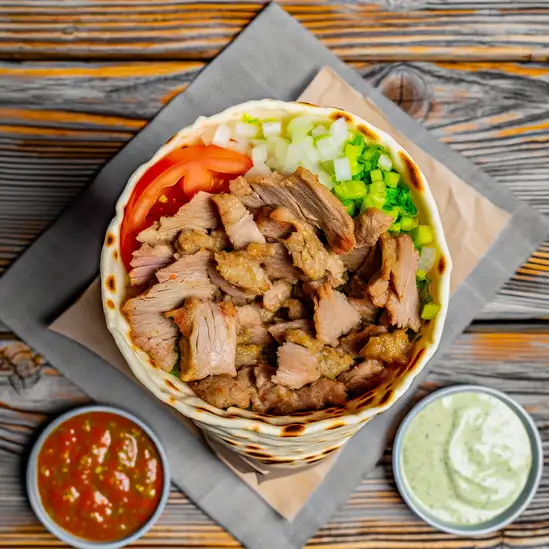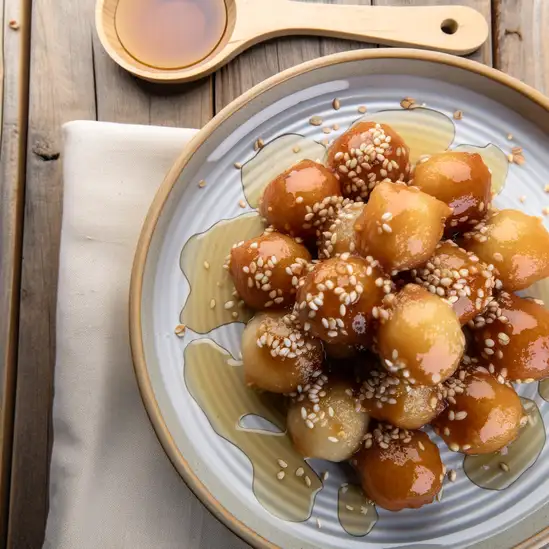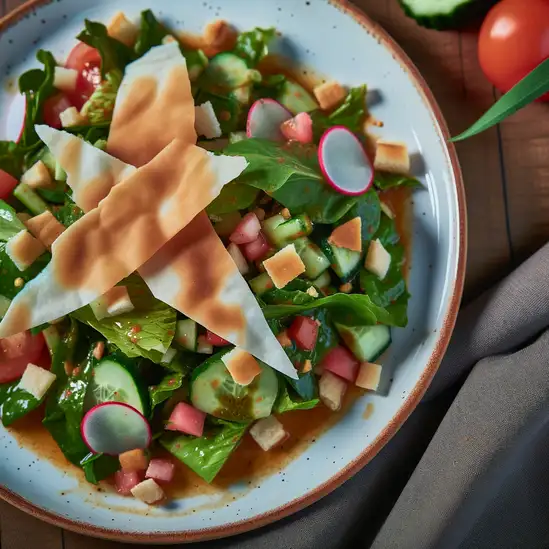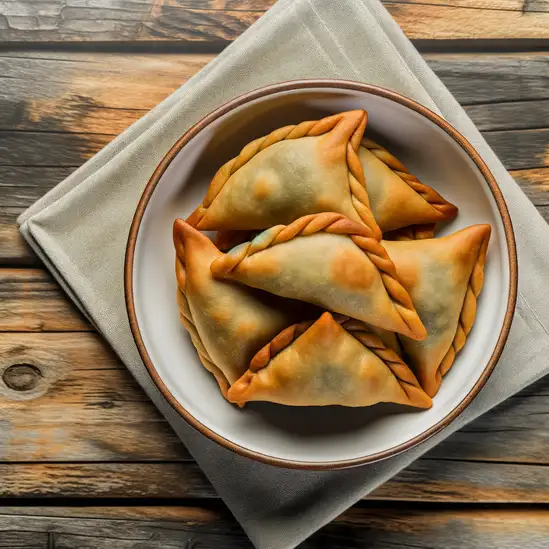



If you’re craving a place where rugged mountains meet serene beaches,Ras Al Khaimah is going to surprise you in the best way. The moment you arrive,there’s this calm energy in the air—less rush,more space to breathe and soak in the natural beauty. Imagine waking up to the soft call of birds and the scent of salty sea breeze mingling with desert earth. It’s a place where you can hike through dramatic canyons one day and unwind on quiet,sandy shores the next. The city itself feels warm and welcoming,with a rich history that whispers through its ancient forts and traditional souks. Walking through the streets,you’ll catch the aroma of freshly baked khameer bread and spices from local markets,while friendly faces invite you to share stories over a cup of strong Arabic coffee. There’s a genuine sense of community here,where old traditions blend effortlessly with modern comforts. What really sets Ras Al Khaimah apart is its pace—unhurried but vibrant. Whether you’re exploring the towering Jebel Jais mountains or savoring fresh seafood by the marina,every moment feels authentic and grounded. It’s a place that invites you to slow down,listen to the wind,and discover a side of the UAE that’s both timeless and refreshingly real.
The information on this page is currently being reviewed by Tripkliq and should be used as a guide only
Eng word: Hello
Eng pronunciation: Marhaban
Local language: مرحبا
Eng word: Goodbye
Eng pronunciation: Wada'an
Local language: وداعا
Eng word: Thank you
Eng pronunciation: Shukran
Local language: شكرا
Eng word: How much
Eng pronunciation: Kam al-si'r
Local language: كم السعر
Eng word: Toilet
Eng pronunciation: Mirhad
Local language: مرحاض
Eng word: Help me
Eng pronunciation: Sa'idni
Local language: ساعدني
Eng word: Yes
Eng pronunciation: Na'am
Local language: نعم
Eng word: No
Eng pronunciation: La
Local language: لا
Eng word: Excuse me
Eng pronunciation: Afwan
Local language: عفوا
Ras Al Khaimah has been a trading hub for centuries, with historical records indicating its significance in trade routes between the East and West as early as the 3rd millennium BC.
The ancient city of Julfar, part of modern-day Ras Al Khaimah, was once a thriving port and pearling town, showcasing the area's historical wealth and trade importance.
The 16th-century Dhayah Fort, built in a strategic hilltop location, served as a defensive stronghold for the region against foreign invasions, notably resisting British forces in 1819.
Historically, Ras Al Khaimah was a central part of the Gulf's pearling industry, contributing significantly to the economy until the early 20th century when the introduction of cultured pearls led to its decline.
The Shimal area in Ras Al Khaimah is home to ancient tombs dating back over 5,000 years, highlighting the rich history and early human settlement in the region.
Al Jazirah Al Hamra is known for its traditional coral-block architecture and was once a thriving pearl-fishing village, providing a snapshot of pre-oil life in the UAE.
The National Museum, housed in a fort that was the former residence of the ruling family until the early 1960s, showcases artefacts that trace the rich cultural and archaeological history of the region.
In 1820, Ras Al Khaimah signed a General Maritime Treaty with Britain, marking the beginning of a new era of peace and maritime security in the region.
Ras Al Khaimah is home to several important archaeological sites, including Kush, revealing human habitation and sophisticated cultures dating back to the Bronze Age.
In Ras Al Khaimah, the most common Power Adaptor is Type G.


A popular street food consisting of marinated meat (usually chicken or lamb) that is cooked on a vertical rotisserie and served in a wrap or pita with vegetables and sauces.

Sweet dumplings made from flour, sugar, and yeast, deep-fried until golden and drizzled with date syrup or honey, often enjoyed as a dessert.

A refreshing salad made with mixed greens, tomatoes, cucumbers, radishes, and crispy pieces of pita bread, dressed with a tangy lemon and sumac dressing.

Savory pastries filled with spiced meat, vegetables, or lentils, often enjoyed as a snack or appetizer, especially during Ramadan.

A spiced rice dish typically made with chicken or lamb, flavored with saffron, cardamom, and other spices, often served with a side of yogurt.

A traditional dish made from wheat and meat, cooked slowly until it reaches a porridge-like consistency, often enjoyed during Ramadan and special occasions.

Zucchini stuffed with a mixture of rice, meat, and spices, then cooked in a tomato sauce, offering a delightful blend of flavors.
Imagine stepping into a place where the future meets tradition in the most dazzling way—that’s Dubai for you. The moment you arrive,there’s this electric buzz in the air,a mix of ambition and warmth that’s impossible to ignore. Skyscrapers like the Burj Khalifa stretch into the sky,shimmering glass and steel reflecting the golden desert sun,while just a few streets away,you can wander through bustling souks filled with the scent of exotic spices and the chatter of friendly vendors. It’s a city that never feels cold or impersonal,even with its towering modernity.
Walking along the Marina at sunset,you’ll hear the gentle lapping of water against sleek yachts,the distant hum of conversations in dozens of languages,and the occasional call to prayer weaving through the air,grounding you in the city’s rich cultural tapestry. The food scene is a vibrant adventure—imagine tasting freshly grilled shawarma,sweet dates,and rich Arabic coffee,each bite telling a story of the region’s heritage and its global influences.
What really makes Dubai stand out is its fearless spirit. It’s a place where desert dunes meet luxury shopping,where traditional falconry coexists with indoor ski slopes,and where every corner invites you to explore something unexpected. Whether you’re marveling at art installations in Alserkal Avenue or catching the cool breeze on a dhow cruise,Dubai feels alive,inviting you to be part of its ever-evolving story.
Imagine stepping onto Abu Dhabi Island and instantly feeling a blend of modern energy and timeless tradition wrapping around you like a warm breeze. The city pulses with a unique rhythm—where gleaming skyscrapers meet the gentle lapping of turquoise waters,and the scent of frankincense mingles with the salty sea air. Walking along the Corniche,you’ll catch the laughter of families,the hum of cyclists,and the distant call to prayer,all weaving together into a vibrant tapestry of daily life.
What really sets Abu Dhabi apart is its graceful balance between the old and the new. The Internal Islands City,with its sleek marinas and chic cafes,invites you to savor fresh seafood while watching luxury yachts drift by. Yet,just a short drive away,you can explore the grand Sheikh Zayed Mosque,where intricate mosaics and towering domes tell stories of culture and faith. The city’s character shines brightest in its people—welcoming,proud,and eager to share their heritage.
Taste the rich spices in a traditional Emirati dish or sip on sweet karak tea as the sun dips below the horizon,painting the sky in shades of pink and gold. Abu Dhabi isn’t just a place to see; it’s a place to feel—where every corner offers a new sensory delight and every moment invites you to slow down and soak it all in. Trust me,once you experience its warmth and wonder,you’ll be planning your next visit before you even leave.
Doha feels like stepping into a vibrant blend of tradition and modernity,where the desert meets the sea in the most unexpected ways. Imagine walking along the Corniche at sunset,the warm breeze carrying the faint scent of spices from nearby souks,while sleek skyscrapers shimmer against the fading light. The city hums with a quiet energy—call to prayers echo softly,mingling with the chatter of locals and the distant hum of luxury cars. It’s a place where the past and future coexist,inviting you to explore both ancient culture and cutting-edge design.
Wandering through the narrow alleys of Souq Waqif,you’ll be enveloped by the rich aroma of frankincense and cardamom,while colorful textiles and handcrafted wares spill from every stall. The lively banter of shopkeepers and the clinking of tea glasses create a warm,welcoming atmosphere that feels deeply personal. Then,just a short drive away,the Museum of Islamic Art stands like a jewel on the waterfront,its architecture as breathtaking as the treasures inside.
What really makes Doha special is its pace—there’s a calm confidence here,a city that’s growing fast but still holds onto its roots. Whether you’re savoring fresh seafood by the water,feeling the soft sand beneath your feet on a desert safari,or simply watching the city lights dance on the bay,Doha invites you to slow down and soak it all in. It’s a place that surprises you,not with loud fanfare,but with quiet moments that linger long after you’ve left.
If you ever find yourself in Male,Maldives,get ready to be swept up by a vibrant little city that pulses with island life and unexpected energy. It’s not your typical tropical getaway where everything feels distant and quiet—instead,Male buzzes with a lively rhythm,where the scent of salty ocean air mingles with the aroma of fresh spices from bustling street markets. Walking through its narrow streets,you’ll hear the chatter of locals,the hum of motorbikes,and the occasional call to prayer echoing from the mosques,all blending into a soundtrack that feels both ancient and alive.
What’s really captivating about Male is how it balances tradition and modernity. You’ll see colorful buildings painted in bright pastels,fishing boats bobbing in the harbor,and sleek cafes serving up rich Maldivian coffee alongside international flavors. The city’s compact size means you can explore on foot,discovering little corners where vendors sell fragrant tropical fruits or where fishermen unload their fresh catch of the day. The warmth of the people here is palpable—they’re proud of their culture and eager to share stories if you stop to chat.
And don’t miss the chance to taste the local cuisine—imagine biting into a spicy mas huni breakfast,where shredded tuna,coconut,and chili dance on your tongue,or savoring grilled seafood fresh from the Indian Ocean. Male isn’t just a gateway to the Maldives’ famous resorts; it’s a lively,sensory-rich place that invites you to slow down,soak in the island spirit,and feel connected to a culture that’s as deep as the surrounding blue waters.
Manama feels like a vibrant crossroads where tradition and modern life dance effortlessly together. The moment you step into its bustling souks,the air is thick with the scent of exotic spices and freshly brewed gahwa (Arabic coffee),while the chatter of merchants and the clinking of tea glasses create a lively soundtrack. Walking through the narrow alleys,you catch glimpses of colorful textiles and intricate handicrafts,each telling a story of Bahrain’s rich heritage.
By day,the city’s skyline sparkles with sleek glass towers,but just a short walk away,you find yourself wandering ancient forts and quiet mosques,their sandstone walls whispering tales from centuries past. The warm breeze carries hints of the nearby sea,and if you head to the Corniche,you’ll feel the gentle splash of waves as fishing boats bob lazily in the harbor. It’s a place where the old world meets the new,and you can savor both with equal delight.
Food here is a celebration of flavors—imagine biting into freshly grilled hammour fish,seasoned with local herbs,or savoring sweet dates dipped in rosewater syrup. The people are incredibly welcoming,always ready to share a story or invite you to try a traditional dish. Manama isn’t just a city to visit; it’s a place to experience,where every street corner hums with life and every moment feels like a warm embrace.
If you ever find yourself wandering through Muscat,you’ll immediately notice a calm,almost meditative rhythm to the city. It’s not the usual hustle of a big metropolis; instead,there’s a gentle blend of tradition and modern life that feels both grounding and inviting. The air carries a subtle mix of sea salt from the Gulf of Oman and the warm,spicy aroma of frankincense wafting from local markets. Walking along the Corniche,you’ll catch the glint of sunlight bouncing off whitewashed buildings and the soft murmur of fishing boats bobbing in the harbor.
Muscat’s charm lies in its contrasts—ancient forts stand proudly against a backdrop of rugged mountains,while sleek cafes and art galleries hint at a quietly evolving culture. The city’s soul is deeply tied to its people,who greet you with genuine warmth and a readiness to share stories over a cup of sweet,cardamom-spiced coffee. Exploring the winding alleys of Mutrah Souq,you’ll hear the lively chatter of vendors and the clinking of silver jewelry,while your fingers brush against handwoven textiles and fragrant spices.
What really stays with you is the sense of place—Muscat feels like a crossroads where the past and present meet in harmony. Whether you’re savoring fresh seafood by the water or watching the sun dip behind the mountains,there’s a peacefulness here that invites you to slow down,breathe deeply,and soak in the beauty of a city that’s quietly proud of its heritage and hopeful for its future.
Fraudulent listings for vacation rentals or hotels may be advertised online, and tourists may lose money by booking non-existent or substandard accommodations.
Tourists may be sold fake luxury items, such as watches, handbags, or electronics, at markets or shops claiming they are genuine.
Unlicensed money exchangers may offer poor exchange rates or give counterfeit currency to tourists.
Vendors may sell low-quality or counterfeit souvenirs, claiming they are authentic local handicrafts or antiques.
Scammers pose as tour operators offering discounted or exclusive tours, but they either overcharge or fail to deliver the promised services.
Tourists may receive fake emails or messages pretending to be from hotels, airlines, or tour companies, asking for personal or financial information.
Street vendors may sell overpriced or fake products, taking advantage of tourists unfamiliar with local prices.
Some taxi drivers may take longer routes or refuse to use the meter to overcharge tourists unfamiliar with the area.
Tourists may be pressured into attending timeshare presentations with promises of free gifts, only to be subjected to high-pressure sales tactics for overpriced or non-existent properties.
The UAE has very strict laws regarding drug use, possession, and trafficking. Even small amounts of illegal drugs can result in severe penalties, including long prison sentences and hefty fines. Prescription medications should be carried with a doctor's note, and some medications that are legal in other countries may be restricted or banned in the UAE.
In Ras Al Khaimah, as in the rest of the UAE, smoking is regulated to protect public health. Smoking is prohibited in public places such as shopping malls, government buildings, and public transport. Designated smoking areas are available in some locations. Violations can result in fines.
Vaping is subject to similar regulations as smoking in Ras Al Khaimah. It is banned in public places and only allowed in designated areas. The sale of e-cigarettes and vaping products is legal, but users should be cautious about where they vape to avoid fines.
What are other people saying about Ras Al Khaimah?
Recent Social posts about Ras Al Khaimah
There is nothing to show you for now.